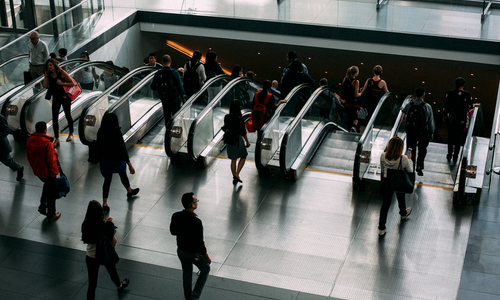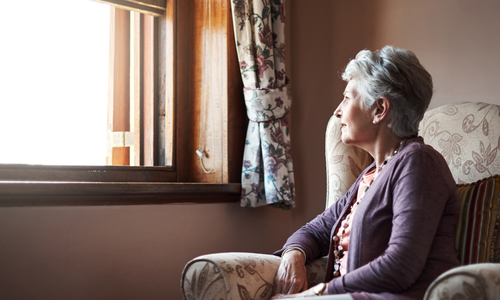Update: From today (Monday 17 May), if you've had both doses of the vaccine you can show this on the NHS App, or get a paper version by calling 119. More information.
As the coronavirus restrictions in the UK continue to ease and more of us have been vaccinated, many are beginning to think about planning travel overseas. Age UK’s Consumer Policy Manager Joel Lewis and Head of Research Libby Webb discuss what we should consider when making our plans.
Will I be allowed to travel?
The UK Government is aiming to allow international travel from 17 May. However, this date is not fixed, and the Government has said that the easing of restrictions will continue to be reviewed. There will be a ‘traffic light’ system for England, which will put countries on red, amber and green lists depending on the Government’s assessment of the coronavirus risk for people travelling there. How easy it is to travel will depend on which list a country is on.
As in the UK, governments across the world continue to review the coronavirus restrictions in place. For some countries, these restrictions include banning international travellers from entering, or requiring them to quarantine for a period of a week or more after arrival. Some countries may allow travellers, but only those who have been vaccinated.
If the travel you are planning is allowed by the UK Government and that of your destination country, you may also want to consider the coronavirus situation in the country you would like to visit before deciding to travel.
Coronavirus in other countries
In many common destinations for UK travellers, the coronavirus situation is currently more worrying than it is in the UK, with many more cases of coronavirus. For instance, in France, Spain and Italy coronavirus is currently 5 times or more common than it is in the UK. As we have seen over the last year, the coronavirus situation can change quickly. These countries may well be as safe, or even more safe, than the UK by the time you plan to travel, but this is far from certain.
Although nearly half of the UK population has had at least 1 dose of a coronavirus vaccine, in many common destinations for UK travellers the proportion of people vaccinated is much lower. In France, Spain and Italy around 1 in 5 people has had a vaccination, and with fewer people vaccinated, ongoing restrictions may remain in place to control the epidemic. You may want to consider whether this would impact what you can do during your trip.
A further issue is new variants of coronavirus – the South African and Brazilian variants, and most recently the Indian variant. Scientists don’t know if the immunity vaccinations have now given so many of us now will protect us as effectively against these variants, which is why they are a concern. These variants – or other emerging variants of concern – becoming commonplace in a country could lead to further restrictions within that country, or even restrictions on travelling there.
Travel traffic light system
The allocation of a country on the ‘traffic light’ system will determine restrictions on travel to that country, including the type and number of coronavirus tests you will need to take, and whether you will need to quarantine when you return.
The ‘red list’ of countries currently includes 40 countries that the Government assesses to be particularly risky. There will continue to be very tight restrictions on travel to these countries even after restrictions on international travel are lifted.
It hasn't been announced yet which countries will be on the 'green list' and have the fewest restrictions on travel. Even travelling to a 'green list' country will still add hundreds of pounds to the cost of your trip, compared to travelling before the pandemic, as you'll have to pay for coronavirus tests before you travel and once you return.
It’s important to bear in mind that countries can be moved from the green to amber, or even red, list very quickly – as has happened with India this week – meaning tighter restrictions when you return than expected. Travellers returning from amber list countries have to self-isolate at home, and those returning from red list countries face significant costs – £2400 for a couple – to quarantine in a Government-designated hotel. Non-British or Irish passport holders or residents are likely to be refused entry from red list countries, as is anyone without proof of a negative coronavirus test.
Travel insurance
Get travel insurance as soon as you book your trip, so you're more likely to be covered if you get ill or there's any other disruption. Insurance protects you against any non-coronavirus incidents, such as illness, injury, lost bags or stolen property. Even with insurance, however, you're not certain to be covered if you catch coronavirus before your trip.
Some travel insurance policies now include coverage for coronavirus related disruption, such as delayed and cancelled flights, but policies are unlikely to be fully comprehensive. You are also unlikely to be covered if the Foreign Office advises against travel to a country, or a country’s traffic light status changes.
Check the terms and conditions of existing or new travel insurance and speak to your insurer if you are not sure what you're covered for.
Refunds
Travel companies are unlikely to give a refund or allow you to rearrange if you catch coronavirus before your trip.
Since the start of the pandemic, many airlines have offered their customers vouchers or rescheduled flights rather than full refunds. If you are offered a voucher or a free rebooking instead of cash, you can accept or refuse it, though you may face long waits to speak to your airline and for them to refund you. Bear in mind that, if the airline were to go bust, vouchers would probably become invalid.
What to consider if you book a trip
- Book accommodation and travel that offers as much flexibility as possible, ideally with free cancellation for as long as possible.
- Package holidays, rather than separate flights and accommodation, offer greater protection. The Civil Aviation Authority insurance scheme means you’ll get a full refund on your package holiday if the company goes bust.
- Package holidays may also be better protected if restrictions on travel aren’t lifted on 17 May. If you book flights separately the airline may refuse to refund you if the flight goes ahead but you're not permitted to travel on it.
- Pay with a credit card if possible, as this offers greater protection than using a debit card.





